Agriculture is the cornerstone of food production and livelihoods for billions of people around the world. In this vast sector, women have always played a fundamental but often underestimated role. Women farmers are responsible for significant contributions to crop cultivation, livestock management, and rural economies. Despite their substantial presence, women in agriculture face numerous challenges and disparities. Empowering women farmers is not only a matter of social justice but also essential for achieving food security, poverty reduction, and sustainable development. In this article, we will explore the importance of empowering women in agriculture, the challenges they face, and the strategies to promote their rights and contributions.
Section 1: The Significance of Women in Agriculture
1.1 The Backbone of Global Food Production
Women make up a substantial portion of the agricultural workforce, with estimates indicating that they contribute to 43% of the agricultural labor force globally (FAO, 2011). In regions such as Sub-Saharan Africa and Asia, women are responsible for up to 80% of food production, playing a critical role in providing sustenance for their communities.
1.2 Nurturing Biodiversity
Women farmers have historically been custodians of traditional seeds and heirloom plant varieties. Their knowledge of seed saving and exchange contributes to preserving crop diversity, which is vital for resilient and adaptable farming systems.
1.3 Sustainable Agriculture Practices

Women are often at the forefront of adopting sustainable agricultural practices. Their contributions to organic farming, agroforestry, and integrated pest management promote ecological balance and reduce the use of harmful chemicals.
1.4 Rural Economies and Community Building
Women’s involvement in agriculture extends to rural development initiatives. They play active roles in social enterprises, cooperatives, and community-building activities, contributing to economic and social development in rural areas.
Section 2: Challenges Faced by Women Farmers

While women play a significant role in agriculture, they also face numerous challenges and disparities that hinder their full participation and potential:
2.1 Access to Land and Resources
In many parts of the world, women have limited access to land and property rights, which restricts their ability to make decisions about farming practices and income. They also face disparities in accessing credit, agricultural inputs, and extension services.
2.2 Gender-Based Discrimination
Gender-based discrimination and cultural norms often limit women’s participation in decision-making processes within farming households and agricultural cooperatives. This restricts their influence over resource allocation and farm management.
2.3 Lack of Education and Training
Inadequate access to education and training opportunities hinders women’s capacity to adopt modern agricultural practices and technologies. This limits their ability to innovate and adapt to changing farming conditions.
2.4 Unpaid Labor
Women’s contributions to agriculture are often undervalued and unpaid. Their extensive work in food preparation, child care, and household chores leaves them with less time and energy for income-generating activities.
2.5 Health and Safety Risks
Women working in agriculture face health and safety risks, particularly when handling chemicals or operating machinery. Limited access to healthcare and safety measures puts their well-being at risk.
2.6 Market Access and Economic Opportunities
Limited access to markets and financial services prevents women from fully benefiting from their agricultural enterprises. They often face price discrimination and challenges in negotiating fair prices for their produce.
Section 3: Strategies for Empowering Women Farmers
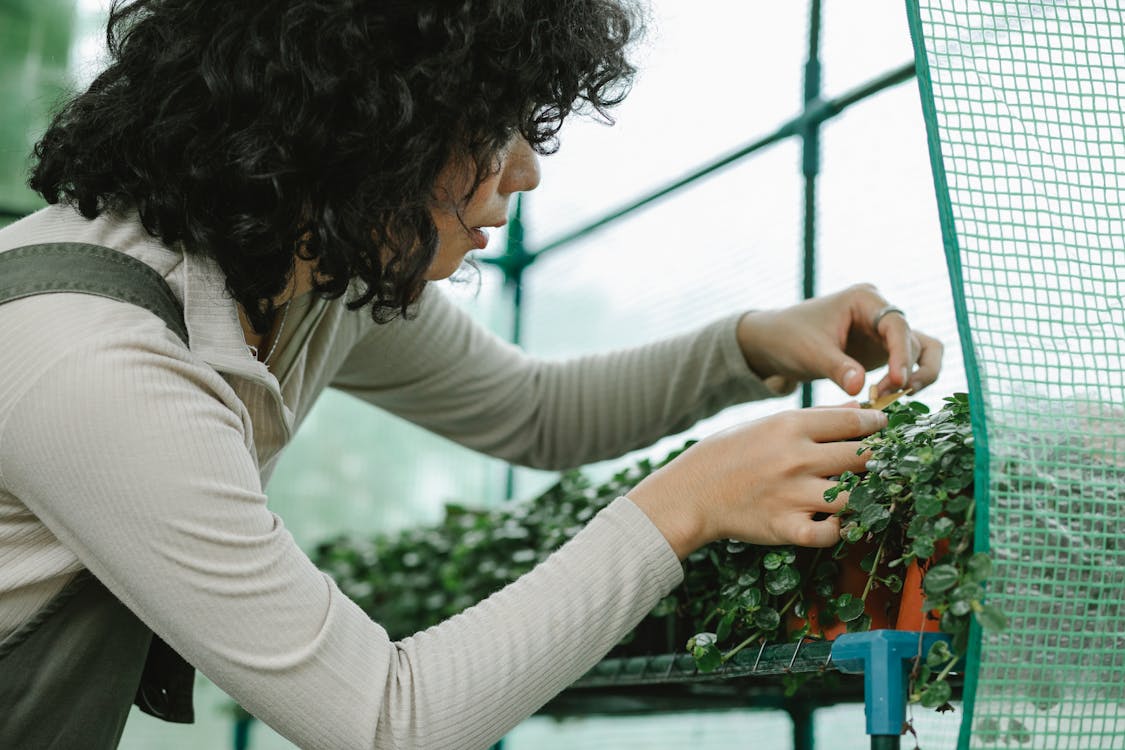
Empowering women farmers requires a multi-faceted approach that addresses both structural and cultural barriers. Here are some strategies and initiatives aimed at promoting gender equality in agriculture:
3.1 Legal Reforms
Many countries are implementing legal reforms to grant women equal rights to land and property. These reforms aim to strengthen women’s land tenure security and decision-making authority.
3.2 Education and Training
Investing in women’s education and providing training in modern agricultural techniques and technologies can enhance their productivity and decision-making capacity.
3.3 Access to Credit and Financial Services
Facilitating access to credit, savings, and financial services for women in agriculture can help them invest in their farms, start businesses, and increase their economic independence.
3.4 Gender-Sensitive Extension Services
Extension services should be tailored to address the specific needs and challenges faced by women in agriculture. This includes providing training on nutrition, health, and safety.
3.5 Support for Women’s Cooperatives
Promoting the formation of women’s agricultural cooperatives can strengthen their collective bargaining power, increase market access, and improve their income.
3.6 Gender-Responsive Policies
Governments and international organizations should adopt gender-responsive agricultural policies that prioritize the needs and rights of women in agriculture.
3.7 Awareness and Advocacy
Raising awareness about the importance of women in agriculture and advocating for gender equality within the sector is crucial for achieving long-term change.
Section 4: Success Stories and Case Studies

Highlighting success stories of women farmers who have overcome challenges and achieved economic independence can inspire and motivate others. Case studies from various regions can provide valuable insights into effective empowerment strategies.
4.1 The Green Belt Movement – Kenya
The Green Belt Movement, founded by Nobel Laureate Wangari Maathai, is a grassroots environmental organization that empowers women through tree planting, conservation, and sustainable agriculture. By engaging women in reforestation efforts and income-generating activities, the movement has improved both environmental conditions and women’s economic status.
4.2 Self-Help Groups in India
In India, self-help groups (SHGs) have been instrumental in empowering women farmers. These groups provide financial services, training, and a platform for collective decision-making. Women have used these resources to invest in agriculture, start small businesses, and improve their families’ livelihoods.
Empowering women farmers is not just a matter of gender equality; it is essential for global food security, poverty reduction, and sustainable development. Women in agriculture contribute significantly to food production, biodiversity preservation, and sustainable farming practices.
Addressing the challenges and disparities faced by women in agriculture requires a concerted effort from governments, organizations, and communities. By implementing legal reforms, investing in education and training, facilitating access to resources, and promoting gender-responsive policies, we can unlock the potential of women farmers and cultivate a more equitable and resilient agricultural sector. Empowering women in agriculture is not only a moral imperative but also a pathway to a more food-secure and sustainable future for all.






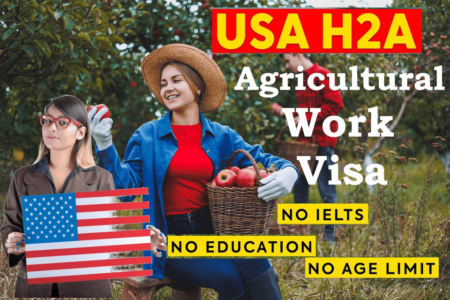

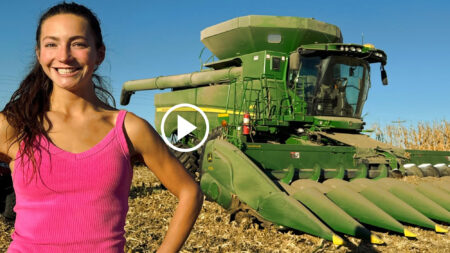
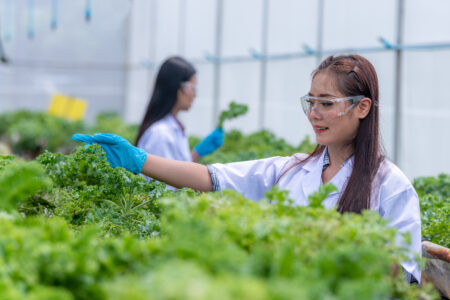
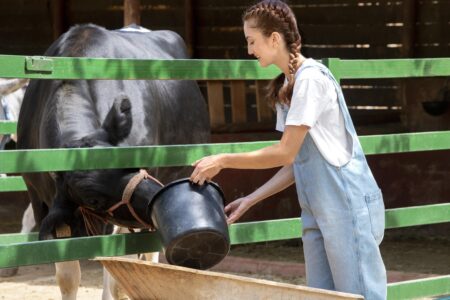

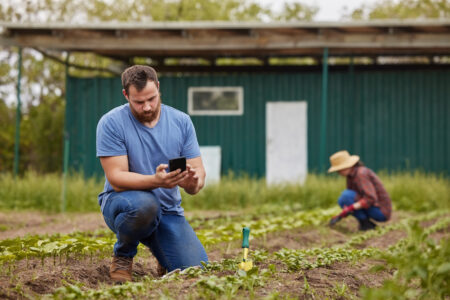


2 Comments
Salut comment tu vas moi je suis chauffeur pour aller je cherche travail poids lourd
I want to learn the farming you are doing. I am living in Maharashtra State Mumbai in India.